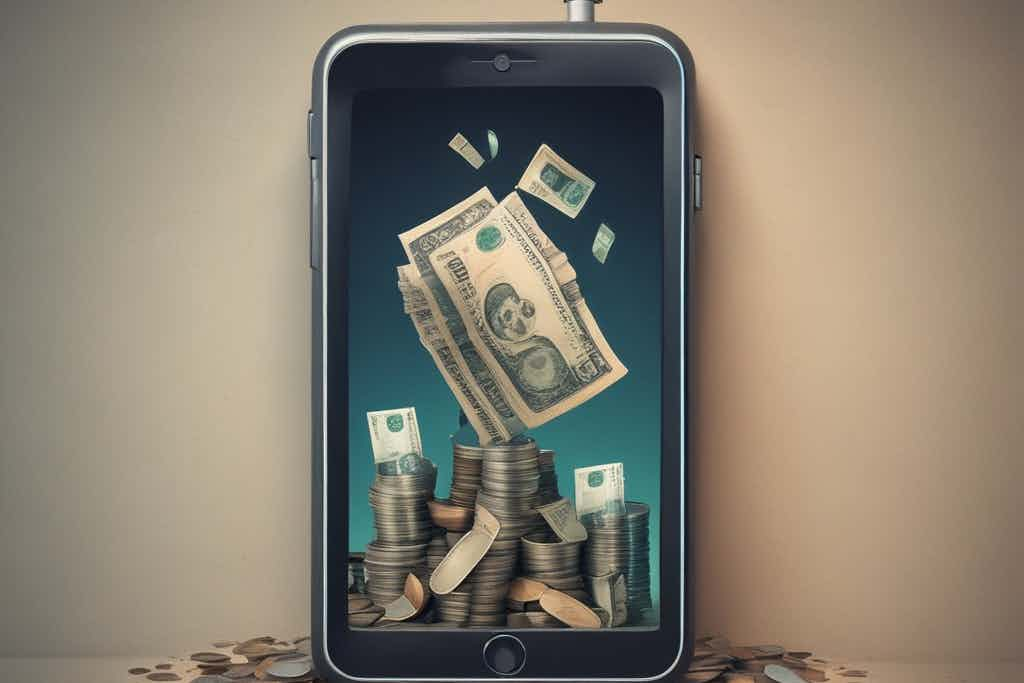In an era of digital wallets, contactless payments, and cryptocurrency, the role of physical cash in our daily lives is rapidly diminishing. This shift towards digital transactions has led many to question: Are we on the brink of becoming a cashless society? Let's explore the trends, benefits, and challenges of this financial evolution.
The Current State of Cash
While cash still plays a significant role in many economies, its use has been steadily declining:
- In Sweden, often cited as the poster child for cashless societies, only 1% of the country's GDP circulates in cash.
- The UK has seen cash transactions fall from 60% in 2008 to just 15% in 2021.
- In the US, cash usage dropped from 26% of transactions in 2019 to 19% in 2020, accelerated by the COVID-19 pandemic.
Drivers of the Cashless Trend
Several factors are contributing to the decline of cash:
- Technological Advancements: The proliferation of smartphones and the development of secure digital payment systems have made cashless transactions more convenient.
- COVID-19 Pandemic: Concerns about virus transmission through physical currency accelerated the adoption of contactless payments.
- Government Initiatives: Some governments are actively encouraging digital payments to reduce tax evasion and money laundering.
- Changing Consumer Preferences: Younger generations, in particular, prefer the convenience and traceability of digital transactions.
- Rise of E-commerce: The growth of online shopping naturally favors digital payment methods.
Benefits of a Cashless Society
The move towards cashless transactions offers several advantages:
- Convenience: No need to carry physical cash or find an ATM.
- Security: Reduced risk of theft and easier tracking of transactions.
- Cost Efficiency: Lower costs for businesses in handling and transporting cash.
- Financial Inclusion: Potential to bring more people into the formal financial system.
- Transparency: Easier to track transactions, potentially reducing tax evasion and illegal activities.
Challenges and Concerns
However, the transition to a cashless society is not without its challenges:
- Privacy Concerns: Digital transactions can be tracked, raising questions about financial privacy.
- Technological Dependence: Reliance on technology makes the system vulnerable to outages and cyberattacks.
- Financial Exclusion: Those without access to digital banking services may be left behind.
- Overspending: The intangible nature of digital money may lead to increased spending for some.
- Loss of Autonomy: Centralized control over digital currency could potentially be misused.
Case Studies
Sweden: The Nearly Cashless Pioneer
Sweden is often considered the world's most cashless society. The country has embraced digital payments to such an extent that many banks no longer handle cash and some businesses refuse cash payments. However, this rapid transition has led to concerns about the exclusion of elderly and rural populations, prompting discussions about the need to protect cash as a payment option.
China: Mobile Payments Revolution
China has leapfrogged credit cards, moving directly from cash to mobile payments. Apps like Alipay and WeChat Pay are ubiquitous, used for everything from street food purchases to utility bill payments. This shift has been so dramatic that even beggars in some cities use QR codes to accept donations.
The Role of Central Bank Digital Currencies (CBDCs)
As cash usage declines, many central banks are exploring the creation of digital currencies:
- China has already piloted its digital yuan in several cities.
- The European Central Bank is developing a digital euro.
- The US Federal Reserve is researching a potential digital dollar.
These CBDCs could provide a bridge between traditional cash and fully private digital payment systems, offering the convenience of digital transactions with the backing of a central bank.
The Future: Cashless or Less Cash?
While the trend towards digital payments is clear, a completely cashless society remains unlikely in the near future. Instead, we're more likely to see a "less-cash" society where digital payments dominate but cash remains an option. The pace and extent of this transition will vary by country, depending on factors such as:
- Technological infrastructure
- Cultural attitudes towards cash
- Government policies
- Concerns about financial inclusion and privacy
Conclusion
The decline of cash and the rise of digital payments represent a significant shift in how we think about and use money. While the convenience and efficiency of cashless transactions are driving this trend, it's crucial to address the challenges of financial inclusion, privacy, and technological dependence.
As we move forward, the goal should be to harness the benefits of digital payments while ensuring that no one is left behind in this financial revolution. The future may not be entirely cashless, but it's clear that the role of physical currency will continue to diminish in our increasingly digital world.










